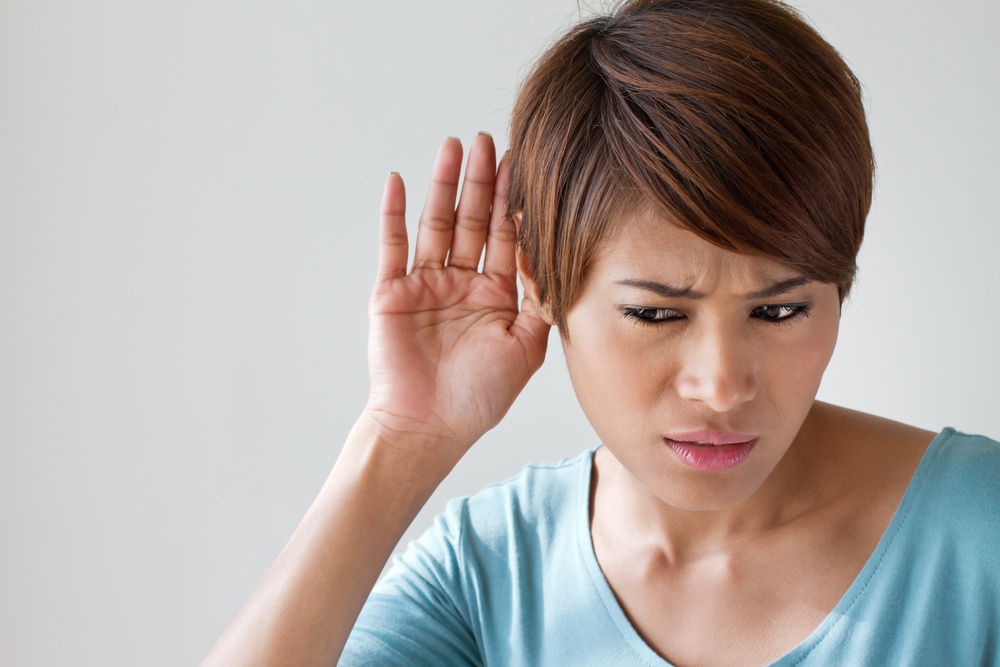
Common Signs of Hearing Loss
Hearing loss is most common in the elderly. Hearing aids are often worn by elderly patients to help them hear better. However, hearing loss can also start at earlier ages due to a traumatic ear injury or a chronic ear condition (i.e., ear infections). Babies can even suffer hearing loss early in life due to genetic conditions, underdeveloped inner ear structure, or a severe infection.
To identify hearing loss at any age, look for the following signs and symptoms:
1. Muffled speech and other sounds
One prime symptom of hearing loss is the patient will hear muffling of speech and other sounds. Patients often feel frustrated, understandably, trying to listen to what someone is saying when they have to strain to hear and repeatedly ask the person to repeat themselves. Often patients can hear, but the spoken word is not clear enough so they can understand what’s being said. This is often a first sign of hearing issues.
2. Difficulty understanding words
Another symptom of hearing loss is difficulty understanding specific words. This is very important because if someone is trying to warn or caution a patient with hearing loss that they need to be careful because a car is coming, or warn them of another danger, and the patient doesn’t understand the warning, they could end up hurting themselves.
3. Frequently asking others to speak more slowly and loudly
By frequently asking others to speak more slowly and loudly, it can cause extreme anxiety and embarrassment for the person suffering hearing loss. They may worry constantly about upsetting the other speaker or develop social anxiety or depression due to this chronic issue.
4. Constantly turning up the volume
Needing to continually turn up the volume of the television, computer, or radio will often cause further damage to the eardrums. Do to constant loud noise, the patient may also suffer tinnitus, which is a ringing, buzzing, or pulsating sound in the ears. If they continue to turn up devices to loud levels, this could lead to permanent hearing damage or further hearing loss, and the patient may need to seek out severe tinnitus treatment options in addition to hearing devices (i.e., hearing aids).
5. Withdrawal from conversations
When suffering from hearing loss, a withdrawal from conversations may become a habit due to social anxiety or embarrassment on behalf of the patient. Continual issues communicating and understanding speech may cause stress, anger, or depression, and the patient can feel left out from conversations because they can’t hear, which may cause them to shut down and limit their conversations with others.
These are all signs to watch out for if you or a loved one is suffering early stage hearing loss. If you notice any of the above signs, please talk to your doctor about options to manage and prevent further hearing loss. For example, early stage hearing loss can benefit from several natural remedies, such as limiting loud noises, wearing hearing protection, and supplements like Quietum Plus, which can be used to support hearing health. If you suffer from tinnitus as well as hearing loss, there are specified products (i.e., Eargo tinnitus hearing aids) that work to amplify speech and environmental sound while providing tinnitus relief.


